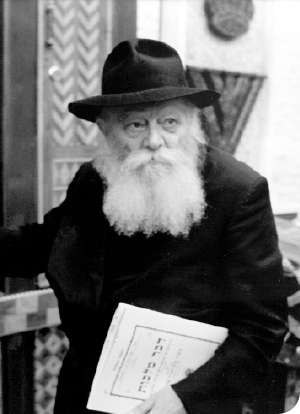Part Five * Having discussed the possibility that every Jew, without exception, has a portion in Olam HaBa, proof can also be brought that it will indeed be that way. Every single Jew, without exception, will eventually unite with his or her Divine source in Olam HaBa.
Translated by Boruch Merkur (Continued from last issue)
 Based on the above, the seeming difficulty arises as to why Yaravam and the others are singled out in the Mishna as having no portion in Olam HaBa, although they were later atoned, whereas Yehoyakim [who was even more wicked than them] is omitted from the list.
Based on the above, the seeming difficulty arises as to why Yaravam and the others are singled out in the Mishna as having no portion in Olam HaBa, although they were later atoned, whereas Yehoyakim [who was even more wicked than them] is omitted from the list.
The two cases, however, are not analogous. It was decreed that in retribution for being sinful, Yehoyakim would “have the burial of a donkey, dragged and cast out beyond the gates of Yerushalayim” (Yermiyahu 22:19), and this decree was issued while Yehoyakim was still alive. Yaravam and the others, on the other hand, were not sentenced to having their bodies desecrated by being incinerated; it was decreed, rather, that Eretz Yisroel would burn, after many years. As a consequence of having been interred there, the bodies of Yaravam and the others were also burnt. Thus, until then and considered in their own right, they warranted having no portion in Olam HaBa.
2. Having discussed the possibility that every Jew, without exception, has a portion in Olam HaBa, proof can also be brought that it will indeed be that way. Every single Jew, without exception, will eventually unite with his or her Divine source [in Olam HaBa].
Above it was explained that t’shuva always helps. Our Sages say (Rambam Laws of Repentance 7:5 following the opinion of Rebbi Yehoshua in Sanhedrin 97b): “The Torah has already promised that the Jewish people will ultimately repent, at the end of their exile.”
Now, one might argue regarding all the above cases that the general rule applies here as well – that “the Torah speaks of the majority,” the majority of the Jewish people. There is then no proof that every single Jew, even the utterly wicked, will repent. However, the correct perspective is apparent in what it says in Eruvin 21b [where it comments on the verse in Yermiyahu 41:1-2: “G-d showed me two pots of figs (dudaei s’einim), prepared before the Temple of G-d … One pot contained very good figs like the first ripe figs, and the other pot contained very bad figs that could not be eaten because they were so bad.”]: “‘The good figs’ – these are the completely righteous. ‘The bad figs’ – these are the utterly wicked. Lest one say that there is no hope for the wicked and that their prospect is negligible, the Torah states, ‘the baskets (duda’im) emit fragrance’ (Shir HaShirim 7:14) – both [the righteous as well as the wicked] will eventually emit fragrance.”
Since it says that they [i.e., even the wicked] will “emit fragrance,” it also proves that it cannot be said that only their judgement will cease but “they will neither live nor be punished, remaining without goodness or harm [i.e., in a form of limbo],” as Tosafos puts it (Bava Metzia 58b, entry beginning with the words, “Chutz m’Gimmel sh’yordim v’ein olim”). And see Shabbos 88b on the verse, “While the king was still at his table my spikenard gave off its fragrance,” as well as the commentary of Rashi (Shir HaShirim 7:14): “‘The baskets emit fragrance’ – The baskets of the good and the bad figs … these are the sinners of the Jewish people … ‘they all seek Your countenance.’ ‘And at our door are all the luscious fruits’ – In our possession there is the reward for fulfilling many Mitzvos.’” The intent here is, as above, that even the sinners of the Jewish people have a portion in Olam HaBa for “they are full with Mitzvos as a pomegranate [is full of seeds].”
(To be continued be”H)
(From a letter dated Monday, the 16th of Tammuz 5703; Igros Kodesh Vol. 1, pg. 141 ff.)